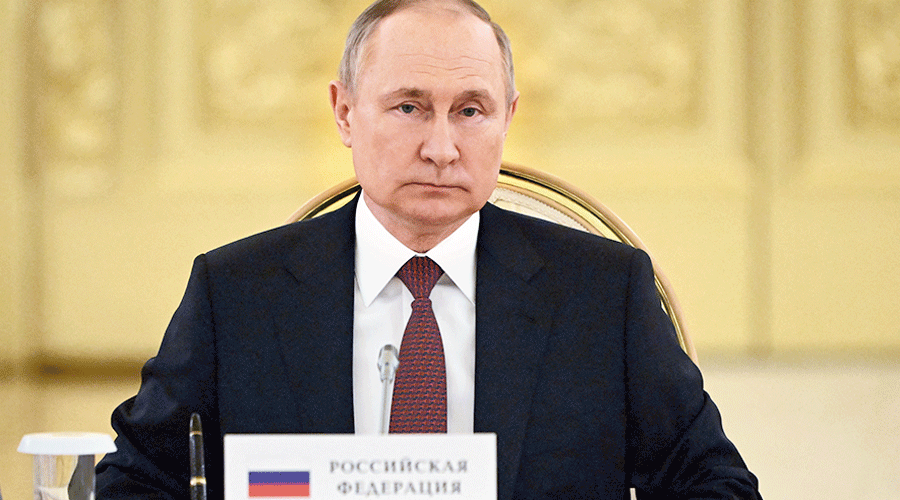The International Criminal Court intends to open two war crimes cases tied to the Russian invasion of Ukraine and will seek arrest warrants for several people, according to current and former officials with knowledge of the decision who were not authorised to speak publicly.
The cases represent the first international charges to be brought forward since the start of the conflict and come after months of work by special investigation teams. They allege that Russia abducted Ukrainian children and teenagers and sent them to Russian re-education camps and that the Kremlin deliberately targeted civilian infrastructure.
The chief prosecutor, Karim Khan, must first present his charges to a panel of pre-trial judges who will decide whether the legal standards have been met for issuing arrest warrants, or whether investigators need more evidence.
It was not clear whom the court planned to charge in each case. Asked to confirm the requests for arrest warrants, the prosecutor’s office said, “We do not publicly discuss specifics related to ongoing investigations.”
Some outside diplomats and experts said it was possible that President Vladimir V. Putin of Russia could be charged, as the court does not recognise immunity for a head of state in cases involving war crimes, crimes against humanity or genocide.
Still, the likelihood of a trial remains slim, experts say, as the court cannot hear cases in absentia and Russia is unlikely to surrender its own officials.
The Kremlin has denied accusations of war crimes, but international and Ukrainian investigators have gathered powerful evidence of an array of atrocities since the invasion’s early days.
The first case, the briefed officials said, deals with the widely reported abduction of Ukrainian children, ranging from toddlers to teenagers. As part of a Kremlin-sponsored programme, they were taken from Ukraine and placed in homes to become Russian citizens or sent to summer camps to be re-educated, The New York Times and researchers have found. Some came from orphanages or group homes.
Moscow has made no secret of its programme, presenting it as a humanitarian mission to protect orphaned or abandoned Ukrainian children from the war.
Russia’s commissioner for children’s rights, Maria Lvova-Belova, the programme’s public face, began sending children to Russia within weeks after the invasion began in February 2022 and has regularly appeared on television to promote adoptions. Putin signed a decree last May to speed up access to Russian citizenship for Ukrainians.
Khan, the prosecutor, has publicly signalled his intentions to pursue this case, saying that illegal transfers of children to Russia were a priority for his investigators.
New York Times News Service










